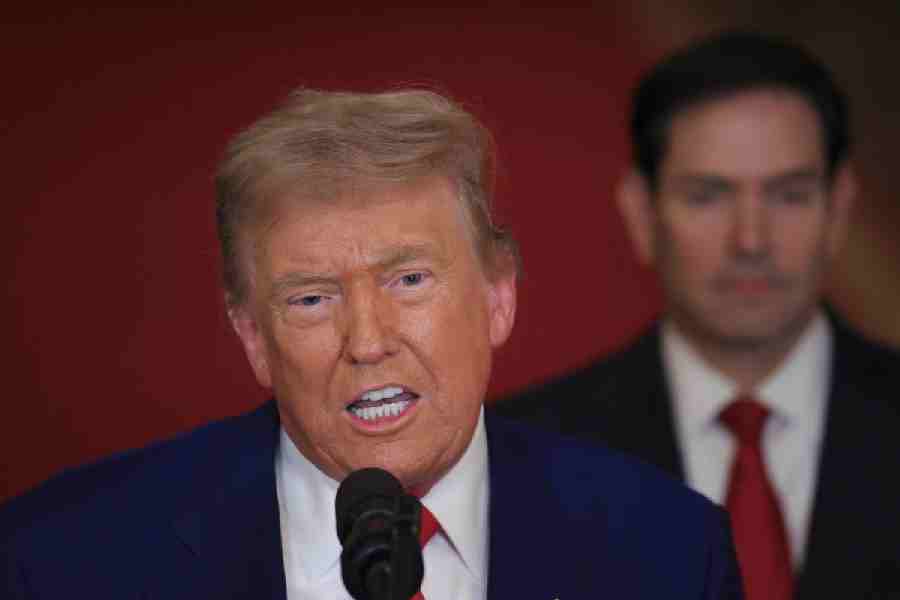On Sunday morning, the United States of America poured bunker-buster bombs on the raging fires in the Middle East, bombing three of Iran’s main nuclear facilities and effectively joining Israel’s war on Tehran. In characteristic fashion, the US president, Donald Trump, triumphantly claimed that his forces had decimated Iran’s nuclear programme and then served up a threat to Tehran: the victim of America’s bombing campaign, he said, must now seek peace with those who have violated its sovereignty. In today’s world, such Orwellian demands go under the guise of realism as bodies tasked with upholding international law, such as the United Nations, remain mute spectators. It is unclear whether the American bombs have indeed destroyed Iran’s nuclear facilities or how far back they have set Tehran’s nuclear programme. It is also unclear how Iran will respond: it could target US bases in the Middle East; Iran’s Parliament has already approved shutting the Strait of Hormuz through which passes more than 20% of the world’s oil. It could also withdraw from the nuclear non-proliferation treaty. As many analysts have pointed out, if any of Iran’s nuclear capabilities have survived, hardliners in Tehran, who have long advocated for a nuclear weapon, will today be emboldened like never before.
What is certain is that far from the peace that Mr Trump speaks of, his attacks have only strengthened the likelihood of intensifying the war that will not stop at the borders of Iran. As any complex and large country, including the US, should know, people put aside deep political and cultural differences to come together when attacked by an external aggressor. Iranian exiles, critics of the current theocratic State, and political opponents within the country — including a jailed Nobel laureate — have all condemned the war-mongering of Mr Trump and Benjamin Netanyahu in recent days. Anti-Americanism will get only further entrenched in Iran. Regionally, Mr Trump’s already low credibility will further take a beating: across the Middle East, countries will know that the US, at Israel’s bidding, could attack them even if they pose no imminent threat. Mr Netanyahu will no doubt benefit: the war with Iran has helped him blunt domestic criticism while distracting the rest of the world from the horrors of his depredations on Gaza. But in the long run, Israel’s isolation in its neighbourhood will only grow. While Iran’s nuclear programme might or might not be dead, Mr Trump’s stature as anti-war president certainly is.











